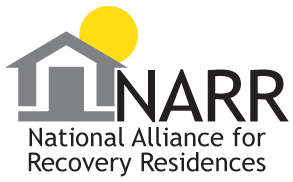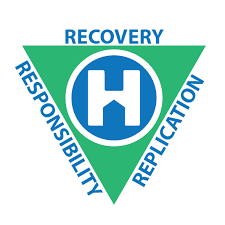Frequently Asked Questions About Sober Housing
Thinking about sober housing? Make sure you can answer these key questions

Q. What are the benefits of sober living?
A. Residences provide safe alcohol- and drug-free spaces to provide time and structure to begin to build recovery programs without the stressors of home, work and family. Living among peers on similar recovery paths allows individuals to adopt and use coping skills that can be incorporated into one’s lifestyle and daily living to support long term sobriety. Structure and accountability are key features of sober living that have measurable benefits to maintaining abstinence.
Q. Factors to consider in choosing a sober home
A. Decide on what you know works best for you: location; gender-specific housing; amenities, on-site management; house rules; cost and lease requirements; length of stay; roommates vs. single rooms; curfews; visitor policies; work requirements; counseling requirements; coaching and other support; meeting attendance.
 Q. How long can I stay?
Q. How long can I stay?
A. Recommendations on length of stay vary, but it is suggested to reside a minimum of three months to allow for stabilization. Recovery residences are transitional living arrangements and not meant as “forever homes”; they encourage residents to best assess their own support needs and when they are ready to move to alternate or original home environments.
Q. What is the cost?
A. Group homes are affordable, and all-inclusive fees range from weekly rates starting at $125 to as high as $5,000 to $8,000 in monthly fees, depending on amenities (food, coaching, on-site therapy and support, housekeeping, transportation). Be sure to check move-in fees and lease requirements.
Q. What are the house rules?
A. Most sober living homes require the following while maintaining residence: daily or weekly 12-step or alternate support meeting attendance; job search and work requirements; house chores; weekly house meetings; curfew and visitor restrictions; overnight and travel restrictions subject to house manager or group approvals; random drug and alcohol testing; and expulsion in event of return to drug or alcohol use.
Q. What about MAT?
A. Check house rules on whether medication-assisted treatment (MAT) is permissible at the residence, prior to moving in. Many residences require medications to remain in a lockbox and be self-administered or securely held and monitored by the house manager.
Q. What qualifies as NARR? 
A. The National Alliance for Recovery Residences (NARR) is a 501(c)(3) nonprofit organization dedicated to expanding the availability of well-operated, ethical and supportive recovery housing. It has developed the most widely referenced national standard for the operation of recovery residences. It works with and supports 30 state affiliate organizations. NARR and these organizations collectively support over 25,000 persons in addiction recovery who are living in over 2,500 certified recovery residences throughout the United States.
Q. What about Oxford Houses? 
A. Oxford House is a concept in recovery from drug and alcohol addiction. In its simplest form, an Oxford House describes a democratically run, self-supporting and drug-free home. This publicly supported, non-profit 501(c)(3) corporation is the umbrella organization which provides the network connecting all Oxford Houses and allocates resources to duplicate the Oxford House concept where needs arise. Over 3,000 recovery residences in the U.S. offer weekly lease agreements and do not have restrictions on length of stay.
More Help & Information
Does the 'Pink Cloud' of New Sobriety Help or Hurt? It's Complicated
The euphoria of early recovery may be fleeting, but long-lasting balance is the goal. Here's how to keep your head up through the process and handle reality with confidence.
Sobriety vs. Recovery: What's the Difference?
Are the concepts themselves up for debate? Do they require certain treatments, or abstinence from everything? It's complicated! And new ways of thinking are changing the conversation.
Now Elite NFL Players, They First Tackled Addiction | News Roundup
All Sober compiles the best of the latest headlines. Here's your addiction and recovery news for the week of Feb. 19, 2024!
Help Them Help You: Explaining Your Mental Health to Your Family
Your mental health can affect — and be affected by — your loved ones. Here's how to discuss it with them so everyone can heal.
Dry January (and Beyond): The Possibilities Are Endless
There's never been a better time to go sober. Whether you're trying it out this month or already living the life, join us for some tips, ideas, inspiration — and maybe even new friends.
Sober Holiday Tips: Meeting 'Share-a-Thons'
Need to get out of the house for a bit and see some friendly sober faces? Recovery support group meeting marathons run 24/7 from Christmas Eve through New Year's Day.
What Happens After an Intervention?
Your loved one agreed to get treatment for addiction during their intervention — or not. Here's what you need to know about what comes next.
We're in This Together: Building a Healthy Sober Support Network
You are the captain of your recovery, but you don't have to do it alone. A sober support network will lift you up in tough times and celebrate your triumphs.











